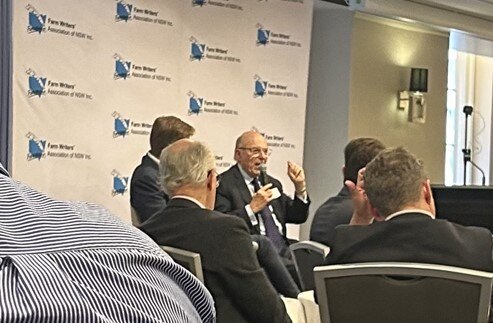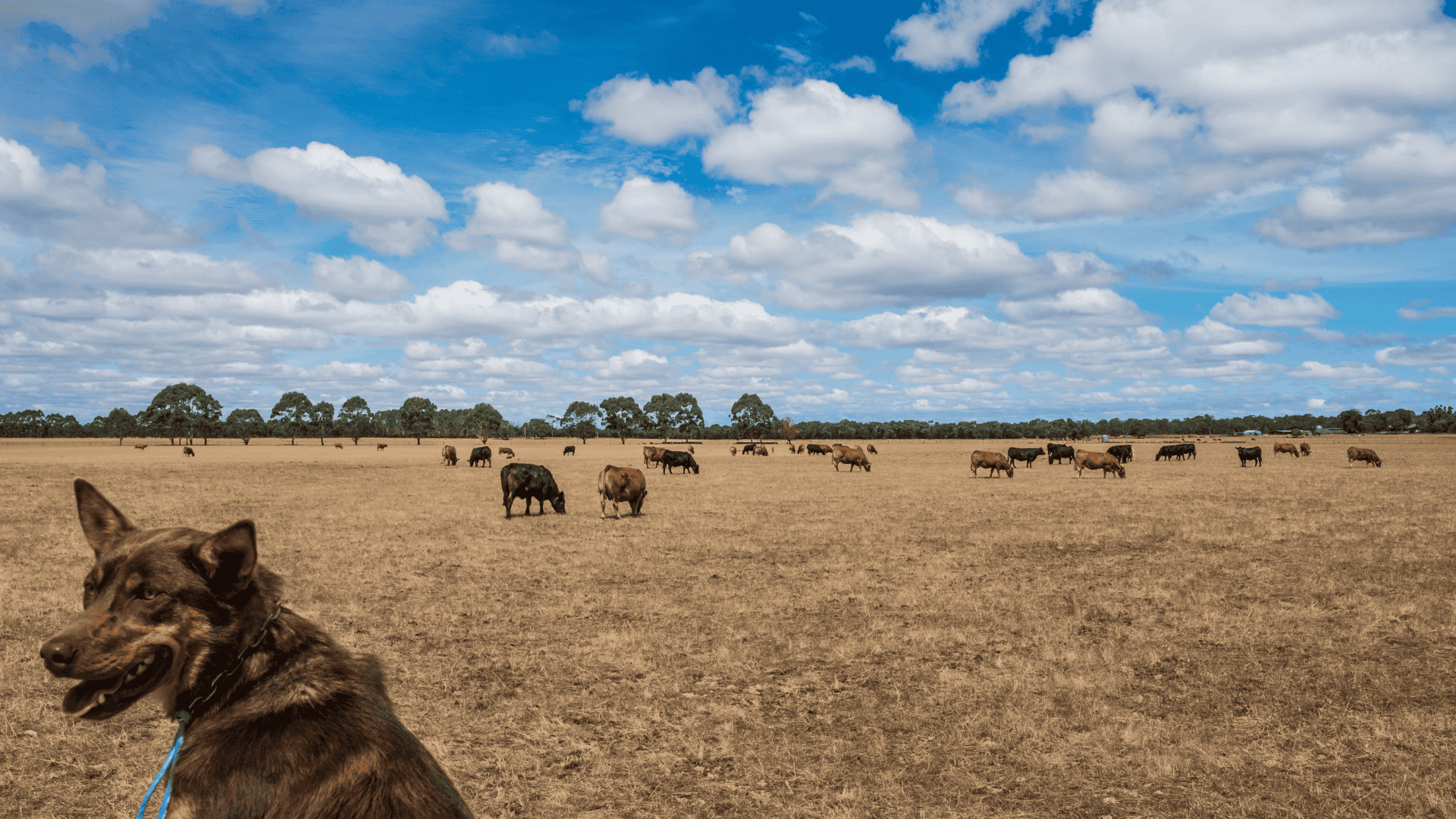Australia ag commodity prices and the Australian dollar
The higher Australian dollar has prompted questions about the likely impact on local extensive agricultural commodity prices. Mecardo has covered...
2 min read
 Alex McLaughlin
:
Aug 20, 2024
Alex McLaughlin
:
Aug 20, 2024

Veteran business writer and guest speaker Robert Gottliebsen forecasts upcoming Industrial Relations reform will not only reduce farm productivity, it will increase food freight and input costs by 10%.
He shared his thoughts at the recent NSW Farm Writers' Association's August media lunch, where he expressed concern that the agricultural sector's vital messages wre not getting the attention they deserved.
Mr Gottliebsen argued that the Federal Government's 700-page IR reform "bible" could significantly reduce farm productivity by encouraging union intervention on farms with 15 or more employees.
He also warned that the new laws, effective August 26, were "designed to bring conflict and disrupt productivity in every enterprise".
These changes, part of broader amendments to the Fair Work Act, include new definitions of casual employment and contractors, as well as the new legislative rights for employees to "disconnect" from phone contact with bosses outside normal working hours.
“There's nobody who will not be impacted by this,” he said.
He described the reforms as a "facade focused on safety" that would empower unions while penalising small businesses.
Notably, Mr Gottliebsen drew upon the point the agricultural sector should brace itself for a 10% increase in food freight and input costs due to the new IR laws.
"They'll be competing against legal cartels that will emerge between unions and big corporate transport operators,” he said.
"I'm no expert, but people I trust, who know this industry, say it will increase transport costs by 10%.”
Mr Gottliebsen, who has spent six decades analysing economic and business trends, highlighted a range of issues facing the industry, including the rising influence of lobbyists and the political agenda of The Greens.
Drawing on recent news out of the Paris Olympics, Mr Gottliebsen questioned why the headlines circulating around the call-out for more red meat for the Australian Olympians, wasn’t receiving more mainstream attention.
"I've got nothing against vegetables, I love them, but why is red meat so important to an athlete's diet?" he asked.
"They must know something we should all pay more attention to.”
Mr Gottliesben commented on the demise of many small family-owned trucking businesses, which would struggle to compete with larger corporate operators aligned with transport unions.
"That flexibility has been keeping transport costs down, but it's going to be very hard for independents to operate and survive in this new IR environment," he said.
The focus on ESG (environment, social, and governance) issues by business leaders and policymakers, he argued did not resonate with the majority of Australians.
"All these people (who are calling for policy change) live in the same place - in city clusters or around the edges," he said, noting that issues like electricity costs and housing prices were of greater concern to the public.
Mr Gottliebsen also noted a growing disconnect between influential decision-makers and grassroots agricultural issues, and expressed concern that the agricultural sector's vital messages were not getting the attention they deserve.
He stressed that the agricultural industry was facing unprecedented challenges from a well-coordinated left-wing agenda, which he believed extended far beyond traditional political boundaries.
“I don't feel the general community has lost touch with what farmers do,” Mr Gottliebsen said.
“But you are going to have to change and mobilise a whole lot more people than just farmers”, he continued.
.png)
The higher Australian dollar has prompted questions about the likely impact on local extensive agricultural commodity prices. Mecardo has covered...

Last week, StoneX released its H1 2026 Australian Cattle & Beef Market Outlook report, which covers all key production forecasts for the beef...

Greasy wool prices have increased markedly this season, in the absence of any substantial improvement in macroeconomic indicators or major apparel...